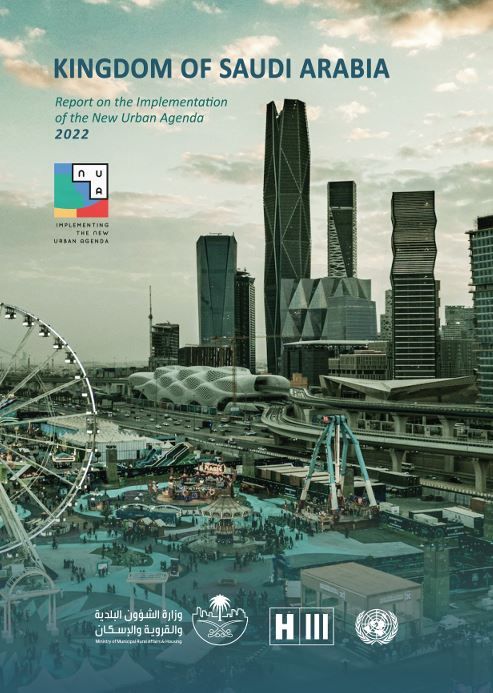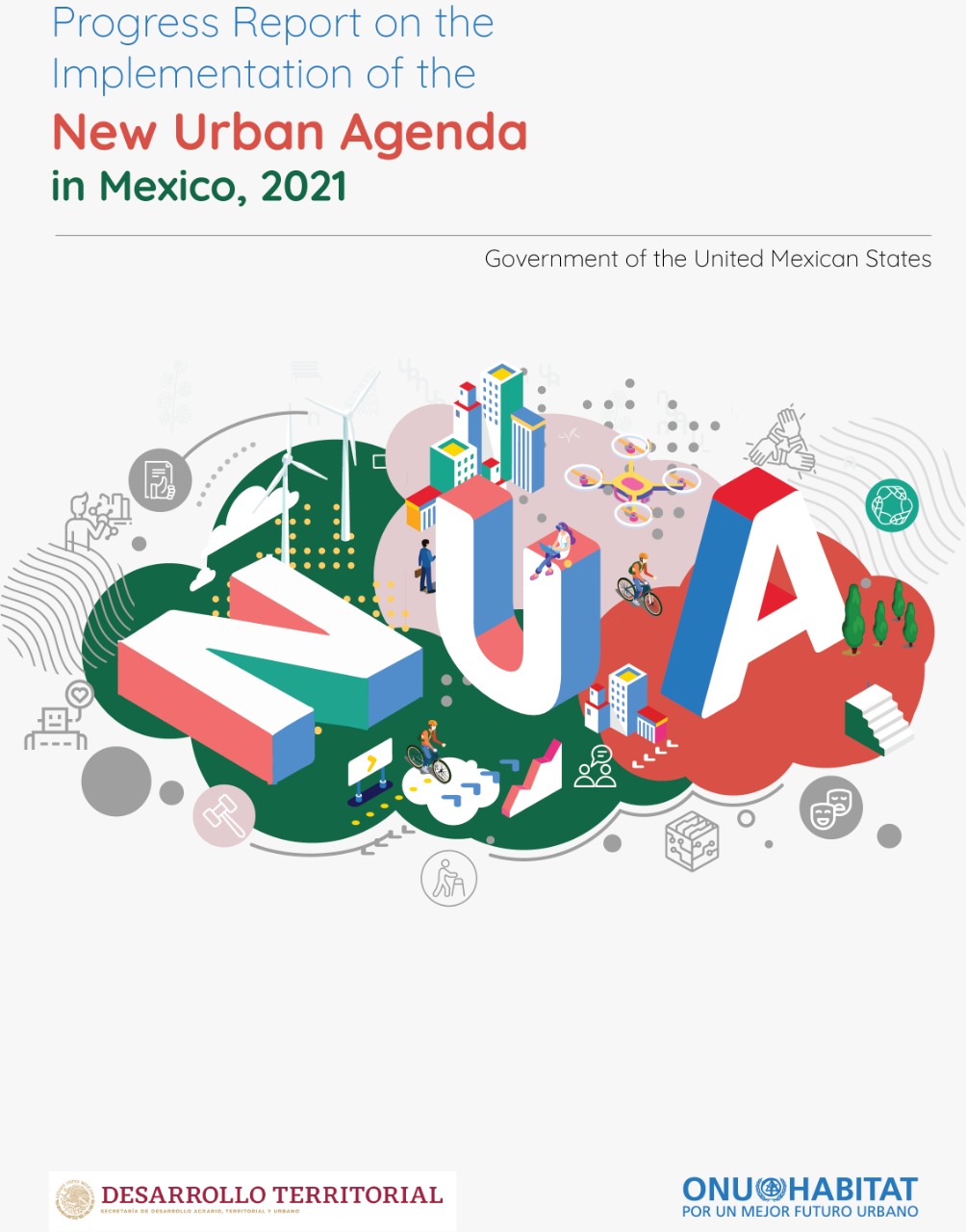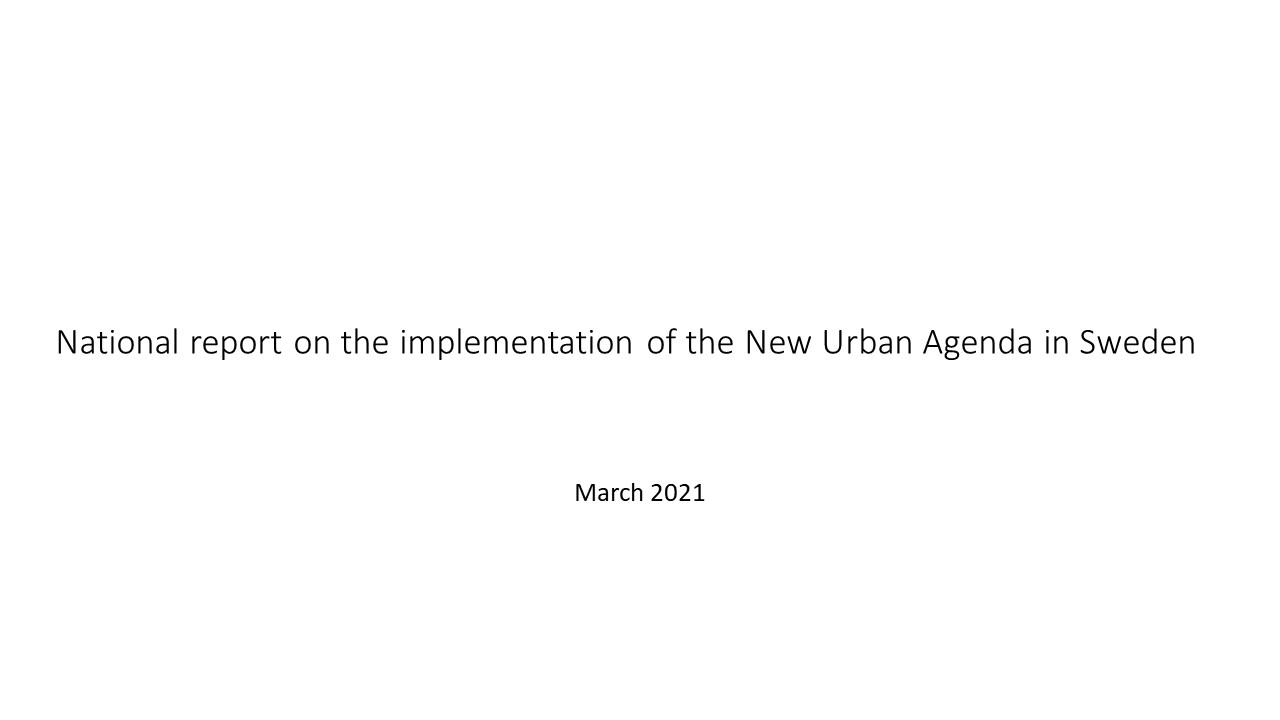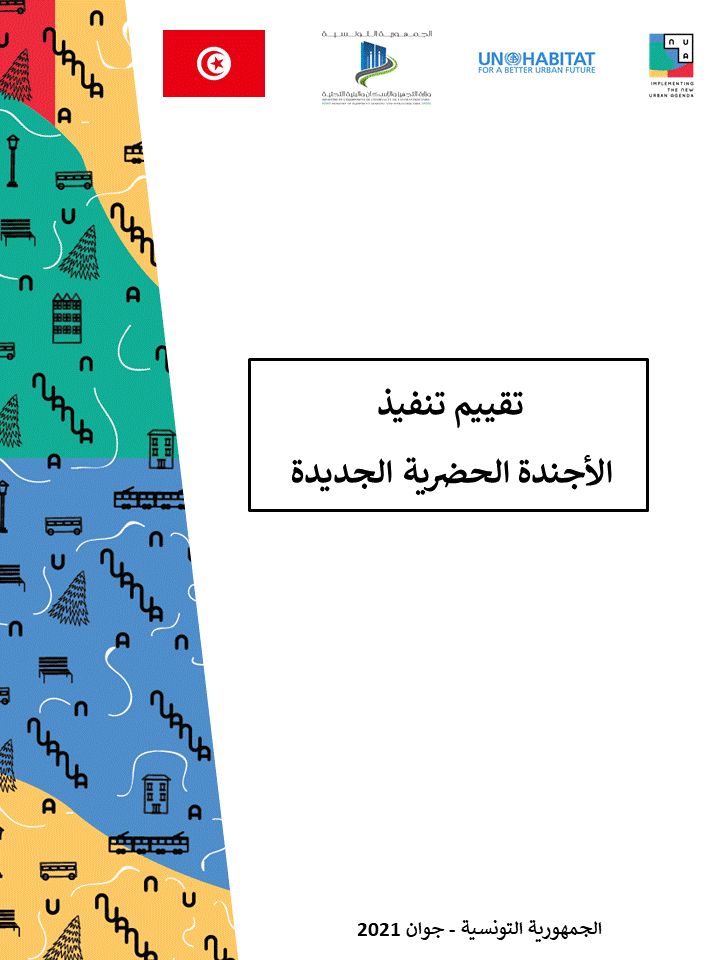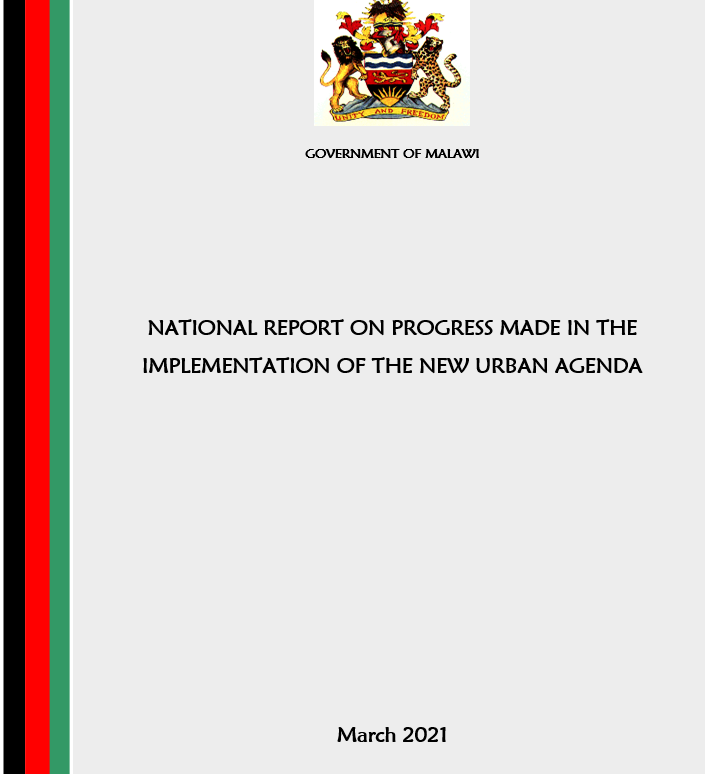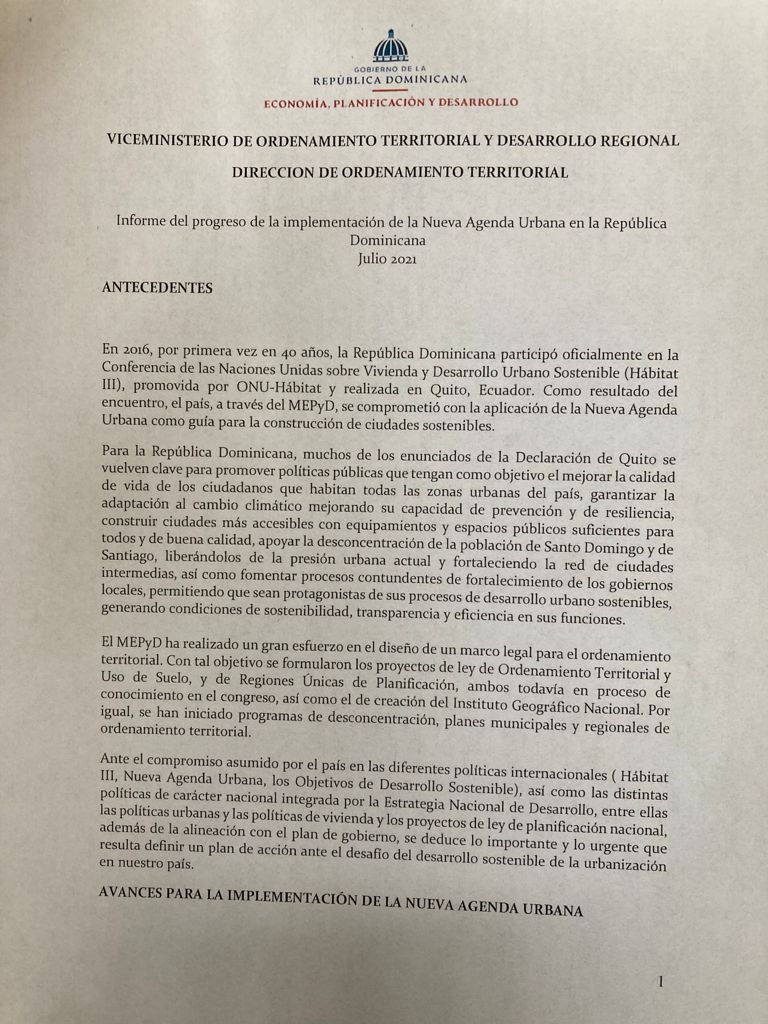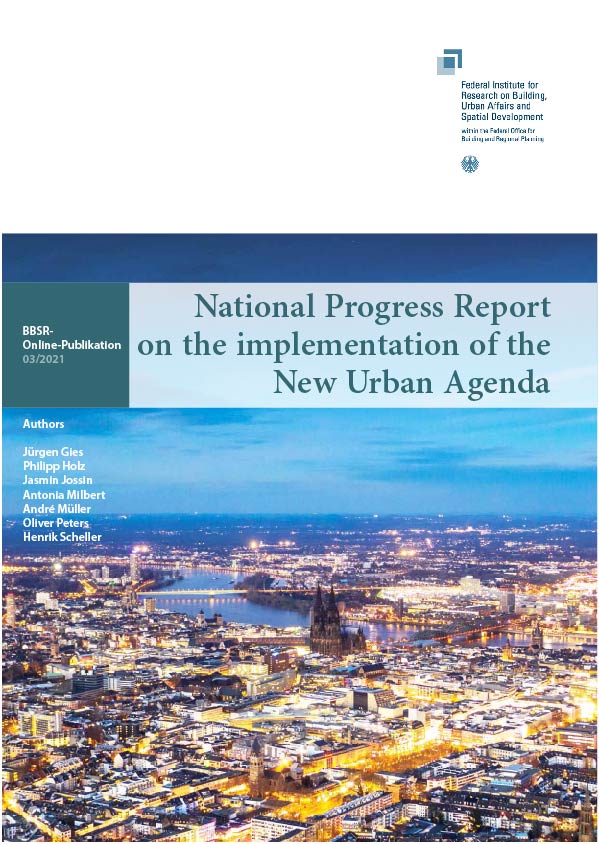National Report 2022 (English version)
In 2016, the Parliament of Mongolia approved the "Mongolia's Sustainable Development Vision - 2030" in order to implement the "Sustainable Development Goals - 2030". The vision's goals and objectives are being implemented in the action programs, guidelines, action plans, projects, and programs of the Government of Mongolia, Governors of the capital city, aimags, soums, and districts, as well as NGOs and business entities. The objective to ensure inclusive, safe, resilient, and sustainable development of cities and towns is being achieved through large-scale development programs, projects, and measures such as improving the legal environment of Mongolia's urban development and land management, developing and submitting the "Human Settlements Development Plan of Mongolia" and the "Ulaanbaatar City Master Plan until 2040", providing the population with housing through the "Rental Housing Program", re-planning and redeveloping the Ger area, land readjustment in Ger area, demolishing and reconstructing apartment buildings that do not meet operational requirements, expanding green areas, public roads, and areas, implementing projects, programs, and measures to reduce disaster risk and adaptation to climate change, and constructing new apartment complexes and districts. The Mongolian government has given priority to housing by cutting the annual interest rate on new mortgages from 8% to 6% in 2020, increasing the chances of low-income households to access mortgage loans, and allocating 4,007 rental apartments from the State housing fund to the target group. Parliament approved some amendments to the Constitution of Mongolia in 2019, allowing for the establishment of a new system for ensuring the sustainability and continuity of Mongolia's development policy and planning. The revised version of the "Law on Development Policy and Planning and its management", approved in 2020 in line with the constitutional amendments, aims to strengthen development policy, planning, management, and organization, and develop and approve long, medium, and short-term development policy and planning documents of Mongolia to ensure consistency and conformity.
National Report 2022
South Africa is over 60% urbanised and has made good progress in localising and implementing the New Urban Agenda. It has developed a framework, the New Urban Agenda Localisation Framework, to align the New Urban Agenda with its urban development agenda, as elaborated in the National Development Plan and Integrated Urban Development Framework. This high-level country report details the main achievements, challenges and lessons learned, and provides examples of case studies and the impact of COVID-19. The report was prepared by the Department of Human Settlements and the Department of Cooperative Governance and Traditional Affairs, the two ministries that lead the localisation of the New Urban Agenda in South Africa. It is based on input from a wide range of government departments and extensive engagements throughout the country with representatives from all of society and all of government. The workshops were curated and facilitated by the Department of Human Settlements in partnership with the South African Cities Network.
National Report 2022
The Kingdom of Saudi Arabia is currently at an important moment in its history. As we set out to position ourselves as a country of the future, we are undergoing an ambitious process of transformation and modernization. This is being driven by the Kingdom’s Vision 2030 Framework, which sets out important aspirations for the country and underscores major reforms in the public sector, the economy and society as a whole. Among others, it seeks to diversify the economy, expand the cultural and entertainment sector, create new opportunities for women and youth and improve the quality of life for all. To achieve this, of course, will be no easy task.
With nearly 85 percent of Saudi Arabia’s population living in urban areas, Saudi cities have an important role to play in realizing this transformation. To achieve this, however, requires a shift from the business-as-usual approach to planning and managing cities that has become so prevalent around the world, towards more bold and innovative solutions that enable us to break free from these traditional models. While acknowledging that this transformation is a journey and not a destination, the Kingdom of Saudi Arabia views the New Urban Agenda as an important roadmap to transform its cities into more desirable and productive places to live and work. This includes promoting density and mixed-use, fostering innovative housing solutions, encouraging multimodal transportation options and building and activating public spaces to create a more vibrant and inclusive environment for all.
This report, which represents the Kingdom’s submission to the United Nations Habitat III process, takes stock of the many success stories that have taken place throughout the Kingdom over the past 5 years and displays the progress that has been achieved on our path to build a more prosperous, vibrant and sustainable nation. It also distills its urban development experiences for other countries that may be facing similar obstacles on their path towards building more sustainable cities. Like the Kingdom’s ambitious urban transformation, this report is not the result of one actor alone, but instead the contribution of many governmental and non-governmental stakeholders that are committed towards making the Kingdom of Saudi Arabia a better place to live, work and enjoy themselves. I am therefore pleased to share the Kingdom of Saudi Arabia’s Report on the Implementation of the New Urban Agenda with the rest of the world.
National Report 2021
Mexico has an important commitment to the fulfilment of the International Agendas focused on addressing multidimensional problems in which the territorial scope is a key component. The 2030 Agenda, the Paris Agreement, the Sendai Framework for Disaster Risk Reduction and the New Urban Agenda (NUA), are some of the references to guide territorial planning and urban development public policies in Mexico and to orient Mexican cities towards prosperity, inclusion, sustainability and resilience.
Thus, the NUA represents a main guide not only for local action in urban matters but also for coordinated actions between different levels of government and relevant actors by establishing principles aimed at ensuring that no one is left behind, develop sustainable and inclusive urban economies and guarantee environmental sustainability, as well as contribute to the fulfilment of SDG 11: Sustainable cities and communities, as well as other related SDGs.
In accordance with the above, this First National Report on the progress in the implementation of the NUA in Mexico 2021, reflects some of the actions implemented by the Government of Mexico in its different scales, as well as the important participation of civil society organizations, private sector and academia, in the principles proposed by the agenda; it also allows identifying the challenges faced so that more and more people benefit from the opportunities that well-planned, safe, resilient and inclusive cities can provide.
National Report 2021
Sweden has a long tradition of active urban planning and development. During the last decades, the quality and potential of urban environments have got much attention and the issues of sustainable urban development have been subject to much discussion and a large number of local, regional and national initiatives.
Sustainable urban development comprises sustainable construction and sustainable planning of homes, infrastructure, public places, transport, recycling and safer chemicals management. This in turn requires new technology and cooperation between several sectors. Inclusive and innovative urban planning is needed to make cities safe and sustainable for the future.
Today, a majority of the Swedish population live in urban areas. Slums do not exist in any conventional sense; virtually all homes have functioning water, sewage, waste management, and heating, and street networks are lit. Nonetheless, there is a lack of housing, especially for households with low income. Segregation is another challenge.
Sweden’s national report on the NUA implementation has been carried out with limited resources in cooperation between the Ministry of Finance and the National Board of Housing, Building and Planning. The monitoring is based on available material such as official reports, evaluations and statistics.
National Report 2021
Since the adoption of 2030 Sustainable Development Agenda, Türkiye has emphasized at every opportunity that it is ready to contribute to a sustainable world. As a matter of fact, Türkiye was among 22 countries that submitted the Voluntary National Review (VNR) Report at the UN High Level Political Forum (HPLF) in 2016, demonstrating that it adopts the agenda. In this context, preparation of the National Report on the Implementation of the New Urban Agenda, which is a tool for the implementation of SDGs at local level, has been carried out under the coordination of the Ministry of Environment and Urbanization, Directorate General for Spatial Planning with a participatory approach; in line with the data received from the pre-requested focal points of the relevant institutions and organizations, municipal best practices and the contributions of the Union of Municipalities of Türkiye in an integrated manner with the development plans, “Sustainable Development Goals Türkiye 2nd National Review Report” and other policy documents.
National Report 2021
Tunisia has been involved in the implementation of the New Urban Agenda emanating from the Habitat III conference, especially since the principles of the plan are fused with the orientations, strategies and policies adopted in Tunisia. However, many difficulties hindered the implementation of the agenda, the most important ones are:
- An economic crisis that the country has been experiencing since 2011: high unemployment before the Corona pandemic, high public debt, low growth rate, high inflation and trade deficit, and declining hard currency reserves.
- The global Corona pandemic, which caused a crisis that was accompanied by an economic and social crisis: loss of jobs, an increase in the level of violence, and an increase in the number of mental illnesses.
- Political crisis: political instability, as 10 prime ministers have rotated to lead the government since 2011.
National Report 2021
This report was prepared by the Malawi National Habitat Committee on behalf of the Malawi Government.
Part one gives the setting of the country for which the report was prepared. It includes a brief description on the country’s COVID-19 Response.
Part two discusses the progress Malawi has made so far in implementing commitments outlined in the New Urban Agenda.
Part three discusses measures, initiatives and means that have been put in place to help in the implementation of the New Urban Agenda in Malawi.
Part four discusses monitoring strategies in the implementation of the agenda in the country.
National report 2021
National Report 2021
Awareness of sustainability issues among politicians and the general public in Germany has grown significantly in recent years and is now expressed in various guiding principles and strategies that are continuously developed. With the adoption of the New Leipzig Charter urban development policy realigns in the sense of transformative urban redevelopment and thus in the sense of the New Urban Agenda. Municipalities are increasingly obliged to embed their planned urban development measures conceptually in corresponding sustainability strategies. After all, the settlement structure, topography and demographics as well as the social, economic and fiscal framework conditions of the more than 11,000 municipalities in Germany reveal considerable heterogeneity. Due to the federal structure of Germany, urban development policy is shaped partly by shared and partly by autonomous responsibilities of the individual federal levels. This increases the need for political and administrative coordination in a cross-cutting policy area such as urban development policy with its various interfaces to other policy areas. It is not uncommon for the topic of sustainability to be advanced in municipal administrations by individual forerunners. In view of the technical and practical challenges involved in implementing the New Urban Agenda, municipalities mention a lack of resources as an obstacle to the accelerated expansion of their sustainability activities.
Pagination
- Previous page
- Page 12
- Next page
